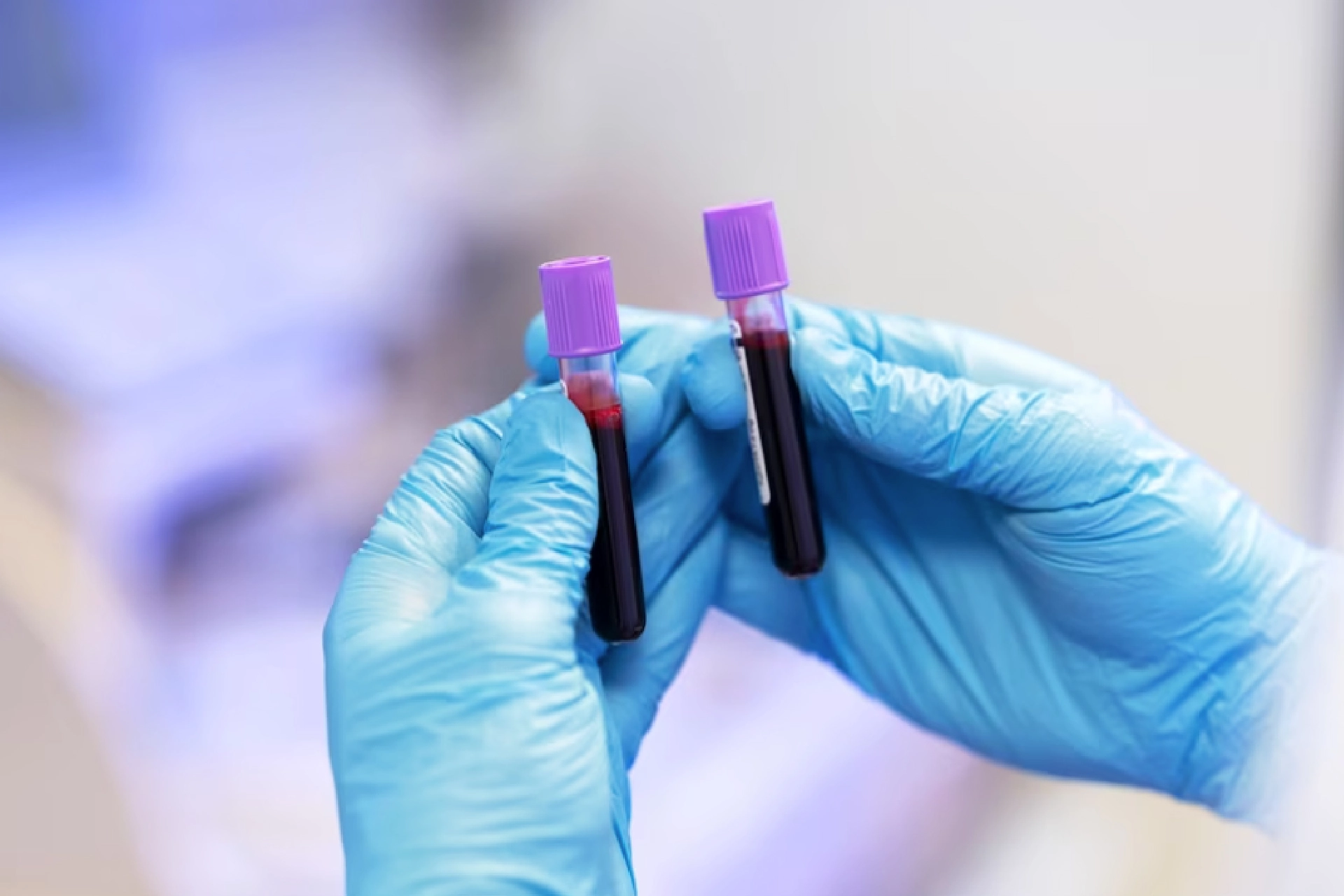Health Tests | 6 min read
What is the CRP (C-Reactive Protein) Normal Range?
Medically reviewed by
Table of Content
Synopsis
A CRP normal range indicates no infection or inflammation in your body. You can maintain CRP normal value by taking prescribed medications and making lifestyle changes. Read to know high CRP symptoms.
Key Takeaways
- The C-reactive protein normal level or elevation is checked by a CRP test
- High CRP levels can indicate bacterial infections or risk of heart conditions
- You can maintain the CRP normal range with medicines or a healthy diet
C-reactive protein, abbreviated as CRP, is a substance your liver produces in response to inflammation caused by pathogens. After formation, the protein is circulated in your blood, which helps to attack the pathogens and reduce infection. These proteins bind to the pathogens and dead cells and remove this cellular debris. The CRP normal range indicates that you don’t have pathogens in your body that can potentially cause inflammation.
The activation of CRP can also become toxic to your health as the CR proteins can activate the antibodies targeting your normal body cells. It can lead to tissue damage and cause unnecessary inflammation in your body.
By maintaining the CRP normal value, you can prevent the worsening of such situations and keep your health in check. Read on to know more facts about CRP levels in your body and the causes behind its increase.
What is CRP Normal Range
CRP is measured in milligrams per liter of blood (mg/L) or milligrams per deciliter (mg/dL). A CRP test normal range is considered below 1mg/DL and is seen in healthy adults. This CRP normal value indicates that you don’t have any infections or inflammatory reactions in your body.
While the CRP normal range differs from lab to lab, in general, normal levels below 1 mg/dL are considered to be safe. This can increase to 3mg/dL if you have certain lifestyle conditions or are pregnant.
When there are fluctuations in the C-reactive protein normal value, more proteins are present in the blood to provide an immune response to a chronic infection. Remember, the rise in CRP normal range will reduce when the triggers are controlled. The CRP test is usually paired with other tests to get a better understanding of any inflammation detected in your body.

How is CRP Tested?
To conduct the CPR test, your blood sample is collected, and immunoassays or laser nephelometry are performed to detect the quantity of CRP present. No prior preparation, such as fasting, is required for this lab test in most cases. CRP tests are of two kinds: normal CRP and high-sensitivity CRP (hs-CRP).
A CRP normal range result detected in the higher sensitivity CRP method is preferred more by doctors in those who show signs of chronic inflammation such as rheumatoid arthritis. The CRP normal range of a hs-CRP test is also below 1mg/L.
This test shows a high risk of developing heart diseases in those whose results cross 3mg/L. Keep in mind that you or doctors cannot make conclusions based on CRP levels alone. This is a marker for making certain treatment or recovery decisions.
Additional read: VLDL Cholesterol Test RangesWhat is Considered a High CRP Level?
Anything above 3mg/L is considered a deviation from CRP normal range.
- A minor elevation is seen at 3-10mg/L (or 0.3-1mg/dL) caused by conditions such as lifestyle factors like smoking and not having an active lifestyle or health conditions like a cold, diabetes, or hypertension.
- A moderate elevation in the normal CRP range is measured at 10 to 100mg/L (or 1-10 mg/dL), which indicates an infectious or non-infectious cause such as heart attack, bronchitis, or rheumatoid arthritis.
- Anything more than 100mg/L (or 10mg/dL) is considered a prominent elevation or marked elevation, suggesting the occurrence of bacterial or viral infections.
- A serious condition is detected when the CRP levels are more than 500mg/L (or 50mg/dL, caused by severe bacterial infections [1].

What Causes High CRP Levels
Severe inflammatory conditions can increase the release of the protein in your blood for immune responses, thus affecting the CRP normal range. There is a wide range of such conditions like autoimmune conditions, inflammatory stomach problems such as Crohn’s disease, ulcerative colitis, and lupus. Generally, the causative factors for the increase in CRP normal range include:
- Infection
- Tissue damage
- Pericarditis
- Cancer
- Obesity
Keep in mind that there are factors that hinder the correct interpretation of CRP levels through the lab test. These are medications that can maintain the CRP normal range in your body, or minor injuries or infections temporarily increase the CRP levels. Other conditions such as taking hormone medications such as birth control pills, and pregnancy, especially in the later stages, can cause your results to go beyond the CRP normal range. Recommending a CRP test along with other tests is the usual protocol followed by doctors to get a better overview of the patient’s health.
How to Lower CRP Levels
Lifestyle changes and dietary changes can significantly lower CRP levels as the medications and many other factors play a role in affecting the test results to go beyond the CRP normal range. Generally, your doctor may prescribe medications appropriate for the particular condition, which helps treat the inflammation. Apart from that, the effective ways to ensure your results fall in the CRP normal range include the following.
- To lower increased CRP levels, follow a balanced diet that is high in nutrients from fruits and vegetables by including raw salads, vegetable curries, and fruit smoothies in your meals.
- Being active physically can increase your heart rate and get you out of a sedentary lifestyle that leads to inflammation.
- Decreasing your weight can help you get your results down to the CRP normal range. Calorie burn is an effective way to sustain the C-reactive protein normal level in your blood.
- A healthy mental state can also help you maintain the C-reactive protein's normal value. You can practice meditation or yoga in your daily routine and achieve mindfulness.
- Some studies suggest that you can maintain the CRP normal range with omega-3 fatty acid supplements or vitamin D supplements that reduce inflammation [2][3].
Now that you know the CRP normal range inform your doctor if you are on any medication, as this can affect the results of this lab test. Undergo the CRP test whenever you notice any warning signs or after a doctor consultation and take measures to manage inflammation. To get this test done easily and affordably, you can book the CRP test on Bajaj Finserv Health. You can avail a lab test discount on the app or website and get the test done from the comfort of home. Here you can also book other tests related to heart health, such as the Apolipoprotein - B test or a cardiac profile that contains this and 63 other tests.
Apart from lab tests, you can also sign up for health insurance offered under Aarogya Care, such as the Complete Health Solution. This policy not only allows you to get free preventive health tests but also offers up to Rs.12,000 for lab tests and Rs.17,000 as reimbursements for visits to a doctor. Starting at just Rs.592 a month, this health plan gives you a cover of up to Rs.10 lakh and comes with a range of other benefits. Check it out today and arm yourself with insurance to give your health and wellness your priority.
References
- https://www.singlecare.com/blog/normal-crp-levels/
- https://www.ncbi.nlm.nih.gov/pmc/articles/PMC6175591/#:~:text=For%20the%20first%20time%2C%20our,as%20a%20cardiovascular%20predicting%20factor.
- https://www.ncbi.nlm.nih.gov/pmc/articles/PMC4073144/#:~:text=The%20results%20of%20the%20meta,with%20the%20evidence%20of%20heterogeneity
Disclaimer
Please note that this article is solely meant for informational purposes and Bajaj Finserv Health Limited (“BFHL”) does not shoulder any responsibility of the views/advice/information expressed/given by the writer/reviewer/originator. This article should not be considered as a substitute for any medical advice, diagnosis or treatment. Always consult with your trusted physician/qualified healthcare professional to evaluate your medical condition. The above article has been reviewed by a qualified doctor and BFHL is not responsible for any damages for any information or services provided by any third party.




